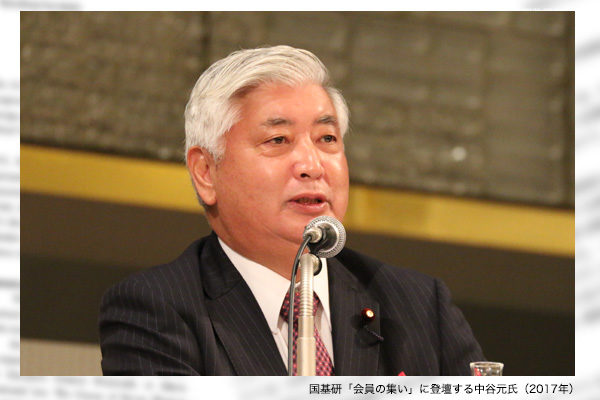Japan’s Prime Minister Fumio Kishida has appointed former Defense Minister Gen Nakatani as assistant to the prime minister in charge of human rights issues. I would like to appreciate the appointment as demonstrating the attitude of Japan as a civilized country sharing universal values to fight against terrible human rights abuse by Chinese Communist Party regime against Uyghurs, Tibetans, Southern Mongolians, Hong Kong citizens, the Falun Gong group and Christians. In this respect, I would like to make two requests.
Enact a law for human rights abuse sanctions
The first is to promptly enact a law for imposing sanctions against human rights abuse. In April 2021, the Nonpartisan Parliamentary Association for Reconsidering Human Rights Diplomacy, for which Nakatani serves as co-chair, called for promptly enacting the Japanese version of human rights abuse sanction laws established in Western countries. “To prevent Japan from being alleged to evade any action against human rights abuse, a law should be established to enable the government to take some action rather than making only oral protests,” Nakatani said then. I would like him to make efforts to enact such law.
I heard that relevant government agencies have raised opposition to the enactment of the law for the reason that it would be difficult to identify human rights abuse. I remember when we launched a national movement for imposing sanctions on North Korea over its abduction of Japanese citizens in 2003, the then Foreign Exchange and Foreign Trade Control Act conditioned any external sanctions on a United Nations Security Council resolution or the like. Japan lacked any legal ground to independently impose sanctions on foreign countries. Government officials noted that Japan could not ban North Korean ships’ entry into Japanese ports under the freedom of navigation principle. But Yoshihide Suga (the previous prime minister) and other lawmakers made a breakthrough by taking leadership in enacting revisions to the Foreign Exchange and Foreign Trade Control Act and the Act on Special Measures concerning Prohibition of Entry of Specified Ships into Ports. As a result, Japan now imposes tougher sanctions on North Korea than required by United Nations Security Council resolutions, exerting pressure on that country to resolve the abduction issue.
Rebut China’s allegations regarding history
The second request is to tackle the issue of history awareness. Since the beginning of this year, China has repeated unreasonably false propaganda regarding the Nanjing Incident and the wartime comfort women issue, asserting that Japan perpetrated genocide-like massacre during the war. Commenting on the Japanese government’s expression of serious concern about human rights abuse in the Xinjiang Uyghur autonomous region, Chinese Foreign Ministry spokeswoman Hua Chunying said on March 25, “Japan is evasive on the humanitarian crime of forced recruitment of ‘comfort women’ to this day. Is this how Japan respects human rights?” “Have they forgotten the 35 million Chinese casualties from the war of Japanese aggression, including the over 300,000 victims of the Nanjing Massacre alone?” She thus reiterated Chinese assertions.
On September 18, a Xinhua commentary asserted that Japan cannot be allowed to whitewash its horrifying crime of the forced recruitment of comfort women, estimating the number of comfort women at more than 700,000. In October, the Chinese government imposed a fine on Japan’s Sony Corp. for an advertisement to announce an event for releasing a new product on the anniversary day of the Marco Polo Bridge Incident, claiming that the advertisement hurt the dignity and interests of China.
The Japan Institute for National Fundamentals will soon publish a policy proposal calling for enhancing international public relations regime regarding history awareness. The proposal will ask the Kishida administration to rebut China and emphasize the fact that Japan never committed genocide or any other crime against humanity during the war. Human rights and history awareness issues are inseparable. Prime Minister Kishida should promptly appoint an assistant to the prime minister in charge of history awareness. The assistant post has been established since under the Shinzo Abe administration.
Tsutomu Nishioka is a senior fellow and a Planning Committee member at the Japan Institute for National Fundamentals and a visiting professor at Reitaku University. He covers South and North Koreas.


